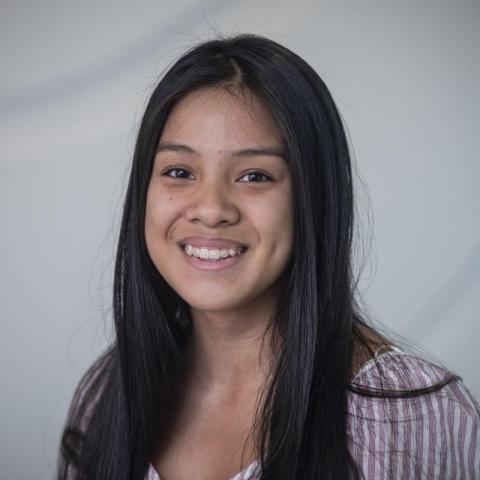Kristine Tandoc is a recent graduate, with a BS in Biochemistry and a minor in Global Health
Why did you choose to pursue the Minor in Global Health?
Throughout high school and the beginning of Freshman year at UW, I was always interested in everything medicine. Additionally, both my parents immigrated to the US from low to low-middle income countries. That heavily influenced how I see disparities in medicine because it was hard for me to understand why health systems around the world were so different than here. When I took G H 101 the Spring of my Freshman year, I found a new way to think about medicine. I was so interested in how the social determinants of health can affect health outcomes and how policy also affects health. Using the frameworks I have learned in class, I was able to better understand the underlying reasons for why health systems vary so much. In G H 101, I got to explore Mexico’s health care system, which is where my mom is from, and understand better why their health system is different and solidifying my interest in Global Health
How does the Minor compliment your core Major studies?
Majoring in Biochemistry leads to most of my required classes being structured as very test heavy without much room for discussion. Minoring in Global Health allows me to be able to participate in more discussion-based and project-based classes while studying something that is still interesting to me. The Minor also allows me to apply what I have learned to some of my science classes. For example, in a biology class we may talk about how the vaccine works and what specific proteins are targeted on the virus with a vaccine. But at the same time, I think about what policies are in place to help everyone receive the vaccine and what are ways to better educate people about the vaccine in terms that are not too complex and accessible.
What has been most valuable about your global health coursework/learning thus far?
What has been most valuable about global health coursework is understanding how social determinants of health impact an individual’s or community’s health. In almost all of the global health courses I have taken, the social determinants of health are the first concept that is reviewed and for a good reason. Without being able to understand the separate levels that influence health, you cannot have an intervention that is successful. Global health is really interdisciplinary and problems that may seem strictly engineering or biology are actually global health problems as well.
What are your professional goals?
My goal after undergrad is to pursue a PhD in microbiology or a related field. After I finish graduate school, I plan to be a biomedical researcher, trying to find interventions that one day may save a life. Having a background in global health will help me think about the efficacy of interventions and always have me thinking about whether this intervention is appropriate and how to best implement it.
Please share your recommendations for prospective and/or current undergraduates on ways in which they may maximize their experience in Global Health (i.e.: events, classes, GH faculty/staff to connect with, etc.)
If you are interested in Global Health, I highly recommend taking a Global Health course as soon as possible! I think the earlier you start your journey into Global Health the more you’ll understand it and can apply it to more aspects of your courses. A class I really enjoyed was Introduction to Environmental Health (ENV H 311). In this class, you cover such a wide range of topics, all relating to how the physical environment affects the health of communities. At the end, you do group presentation about your researched solution an environmental health issue. No matter what class you take, you’ll always walk with something valuable.
As a member of the Global Health Undergraduate Advisory Board, how do you envision building community within the student body and how may students connect you for ideas/inquires?
Especially during these trying times, building community is important. Some ideas I had for community building are movie nights, a baking competition, game nights, a virtual group volunteering session, and Zoom socials or mock happy hours. I also think it’s important to provide students the opportunity to be able to connect with staff and faculty in the Department of Global Health. For this, I would like to plan small group seminars (15-20 students) where we invite Global Health professionals to talk about their work and hot topics in Global Health that students would like to talk about in more depth.

